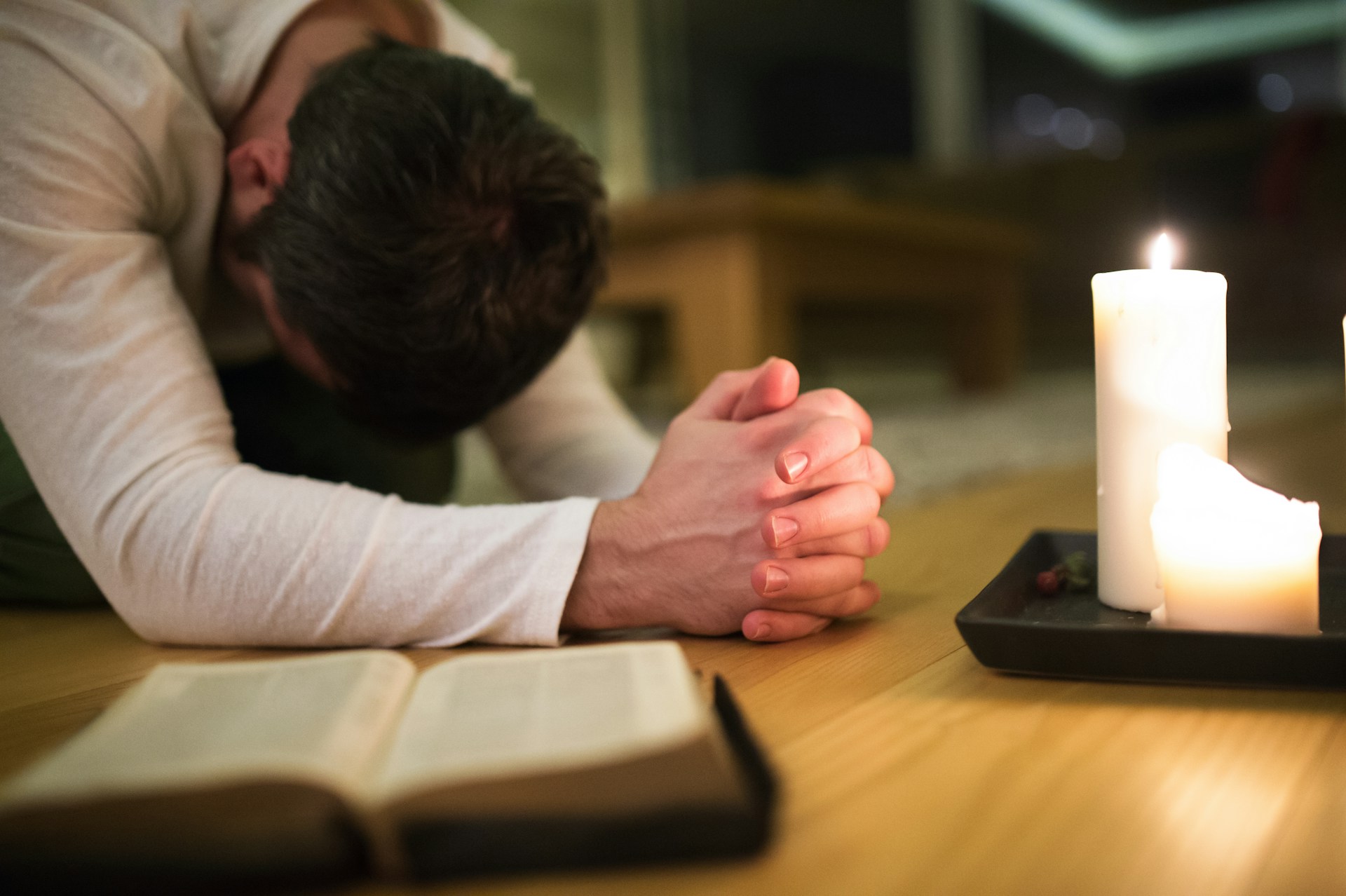Coping with PTSD (Post-Traumatic Stress Disorder) is a process of ups and downs, steps forward to a healthier mind, and steps backward to unhealthy habits. We are often obstacles to ourselves, but that doesn’t have to be the case. We can help ourselves by repeating affirmations and exercises that counter our trauma as often as we need to.
Some Affirmations for People Who Are Coping with PTSD
I am not my trauma
You can live with certain memories for so long that they start to feel like old friends. Even traumatic experiences become familiar because you spend so much time reminiscing, regretting, and reliving them in your head. This is the core of PTSD; it is ghosts of a hurtful, violent, or damaging past haunting our present. They bring back all of the emotions and memories attached to those events.
The truth is that, however real and fresh the trauma feels, it is in the past. It is no longer a part of you. You might be forever changed by those events, but you are moving forward, and every day there is distance between you and them. You still have a future.
My abilities extend beyond past trauma
 Abuse can take away our peace of mind, our innocence, and our trust in people. Whatever damaging experience you went through, though, you are still here and enduring. You can heal, forgive, and learn to trust again.
Abuse can take away our peace of mind, our innocence, and our trust in people. Whatever damaging experience you went through, though, you are still here and enduring. You can heal, forgive, and learn to trust again.
As grief counseling teaches, when a tree is cut down, we must mourn its loss. However, we can also create a beautiful garden around its stump and keep it as a memory of what it once was. Trauma might have taken many things from you, but there is still much more for you to discover and enjoy. Memories need not cause so much pain that they blur any good ahead.
Healing is a messy process, and I’m allowed to have bad days
It’s natural to crave structure and calm after experiencing a traumatic event. Most people just want to put it behind them, move on, and forget about it. Unfortunately, it’s not always possible to control your mental, emotional, and physical response to trauma. Things might get a lot messier before they get better. This is completely fine; it is okay to experience messiness in your thoughts and emotions as you heal.
A helpful thing for the difficult days would be to find an activity or hobby that helps you center. During the pandemic, many people found activities like working out, using adult coloring books, playing with LEGO, and gardening to help them stay calm. A physical activity that requires you to use your hands more than your brain is good for calming down and zoning out on those days when you just aren’t feeling up to it.
It’s okay to feel all the emotions. Even negative emotions are valid
It’s okay to not feel okay. It’s also okay to feel great, even though you might tend to overthink it. Emotions can be alarming, especially when they seem to change so rapidly. It’s easy to feel out of control when you are on an emotional rollercoaster, but that is one aspect of coping with PTSD.
 It might be helpful to find some way of expressing certain emotions. For example, if you are in an upbeat mood, you could express it by singing along to your favorite music. For the down days, you might want to lean into the low moods by dressing cozy, entering into “low power mode” by being less verbal. It might be helpful to journal some of your thoughts.
It might be helpful to find some way of expressing certain emotions. For example, if you are in an upbeat mood, you could express it by singing along to your favorite music. For the down days, you might want to lean into the low moods by dressing cozy, entering into “low power mode” by being less verbal. It might be helpful to journal some of your thoughts.
Finding a way to express your emotions will help you to feel more in control of them; rather than fighting them or stifling them, you can find appropriate ways to express them.
I do not need to carry guilt or shame for what happened in my past. None of what happened to me was my fault
You might need to repeat this one to yourself slowly and often for it to sink in. You are not responsible for the trauma you went through. Whatever circumstances led to you having PTSD are beyond your control now. Carrying guilt, embarrassment, or shame around with you will only delay the healing process when coping with PTSD.
To get past these feelings, you might want to consider sitting down and writing a letter to yourself. It may be most helpful to write it by hand, so you can engage more of your personality in the exercise. Write down every detail that you are feeling guilt or shame over. Consider the events you are writing about and each emotion attached to them. Read the letter over before concluding, and then release yourself from these feelings.
One of the reasons healing takes time is that we need to find closure for some events. Finding closure is not always easy or possible, but we can construct a kind of closure with an exercise like the one above. Sometimes we need to say or hear certain things, even if we are the ones writing, reading, or saying them.
Healing will take time, but that does not mean I am stuck
 If you have ever scoffed at the saying “This too shall pass,” you are not alone. Anyone coping with PTSD will tell you that time doesn’t automatically heal all things. It takes some effort, intentionality, and education to move past the effects of PTSD. Even then, we might not feel certain that we are okay.
If you have ever scoffed at the saying “This too shall pass,” you are not alone. Anyone coping with PTSD will tell you that time doesn’t automatically heal all things. It takes some effort, intentionality, and education to move past the effects of PTSD. Even then, we might not feel certain that we are okay.
One of the most helpful aspects of journaling is that you can look back on the things you wrote, see how you felt in the past, and compare that to how you feel today. It is some way of measuring the passing of time. If you do not like writing or journaling, hear this and repeat it for yourself: you are not stuck. There is no fast or direct route to healing, but the fact that you are here today reading this is proof of your progress.
I deserve to feel better mentally and emotionally
Some types of trauma affect you to the core of your self-worth. It can leave you feeling as if you were deserving of the treatment you faced or at least deserving of the struggles you are going through now. There is a process for recovering your sense of self-worth, and it begins with the affirmation that you deserve to feel better; you deserve not to struggle.
You might not be a person of faith, or your faith might be affected by the trauma as you ask yourself, “Where was God when all of that was happening to me?” That is a valid question and one that you can turn into a prayer.
Many psalmists and writers of the Scriptures posed similar questions to God. Reckoning with your beliefs is a helpful way of engaging in the healing process. The ability to honestly pose anger, doubts, fears, and questions to prayer is a form of therapy in and of itself.
Further Up and Further In
 Author C. S. Lewis concluded his seven-book series, “The Chronicles of Narnia,” by describing what the afterlife looked like. In the final chapter of “The Last Battle,” everyone is exploring a strange new land when the Messiah figure, Aslan, calls them to go, “Further up and further in!” These cryptic instructions prompt the people to go on a quest, exploring and uncovering the strange and wonderful layers of the land in which they are destined to live for eternity.
Author C. S. Lewis concluded his seven-book series, “The Chronicles of Narnia,” by describing what the afterlife looked like. In the final chapter of “The Last Battle,” everyone is exploring a strange new land when the Messiah figure, Aslan, calls them to go, “Further up and further in!” These cryptic instructions prompt the people to go on a quest, exploring and uncovering the strange and wonderful layers of the land in which they are destined to live for eternity.
The journey of healing is often similar to following the cryptic instructions shouted by Aslan. We journey further up the mountain of healing as we go further into ourselves, uncovering trauma to find healing.
The point is that, however complicated and multilayered the path to healing is, it is also full of promise, excitement, and joy. As Lewis writes in the final chapter, “Now at last they were beginning Chapter One of the Great Story, which no one on earth has read: which goes on forever: in which every chapter is better than the one before.”
However complicated the path to coping with PTSD may be, you do not have to travel alone. We can help you by connecting you with a counselor who will travel the road with you. Reach out to our offices today, and we can take it from there.
Photos:
“By the Boats”, Courtesy of Andrew Neel, Unsplash.com, CC0 License; “Surf’s Up” Courtesy of alexandre saraiva carniato, Pexels.com, CC0 License; “Train Wreck,”, Courtesy of WikiImages, Pixabay.com, CC0 License; “Drowning”, Courtesy of Nikko Macaspac, Unsplash.com, CC0 License
- Joel Thomas: Author
Whether you’re feeling trapped or overwhelmed by feelings that won’t go away, dealing with trauma including grief and loss, struggling with addiction of some kind, or facing other concerns, I offer a comforting, non-judgmental space where you can pro...
- Kate Motaung: Curator
DISCLAIMER: THIS ARTICLE DOES NOT PROVIDE MEDICAL ADVICE
Articles are intended for informational purposes only and do not constitute medical advice; the content is not intended to be a substitute for professional medical advice, diagnosis, or treatment. All opinions expressed by authors and quoted sources are their own and do not necessarily reflect the opinions of the editors, publishers or editorial boards of Stone Oak Christian Counseling. This website does not recommend or endorse any specific tests, physicians, products, procedures, opinions, or other information that may be mentioned on the Site. Reliance on any information provided by this website is solely at your own risk.







